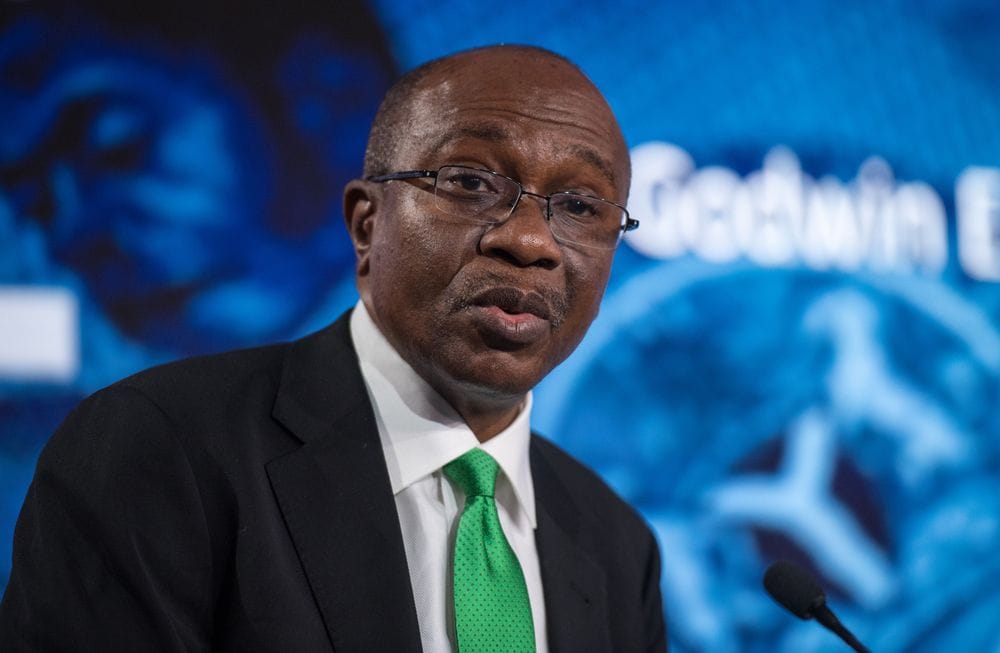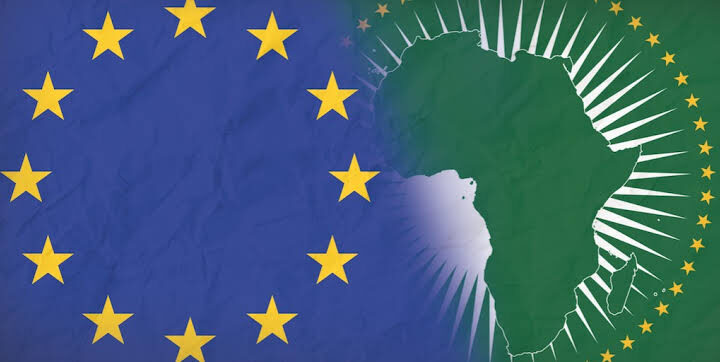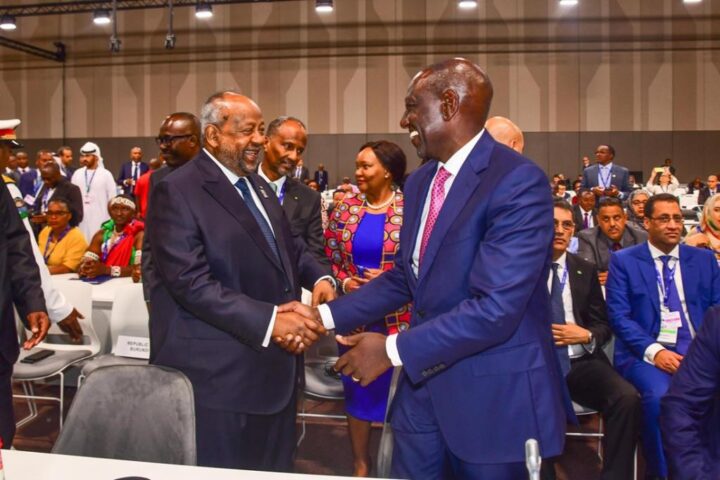As Nigeria’s monetary policy managers, the Central Bank of Nigeria (CBN), through its highest decision-making organ, the Monetary Policy Committee (MPC), holds its 287th meeting on Monday, September 26, and Tuesday September 27, taming inflation and maintaining Naira stability remains its priority.
Prime Business Africa (PBA) had reported that the MPC will most likely continue with its liquidity tightening measures by either sustaining the MPR fund rate at 14 per cent or increasing it further by at least 100 basis points.
Join our WhatsApp ChannelPart of CBN’s major headache is spiraling cost-push inflation, a major catalyst for the free fall of the country’s currency, the Naira. There were fears that the dollar could actually exchange for N1000 by the end of the year.
READ ALSO: Dollar May Hit N1,000; Naira Devaluation Looms
All over the world, central banks intervene through monetary policy formulation/implementation and effective financial services sector regulation to tame inflation. In doing this, apex bank governors must align with fiscal policy managers in he executive arm of government to ensure price stability, the crux of which is stable currency.
For the CBN, there are major concerns: Global financial markets are experiencing major events as investors re-balance portfolios away from gold and equities to fixed income securities. They do this to take advantage of rising yields in advanced economies as major central banks, including the US Federal Reserve and the Bank of England, continue with interest rate hikes. This tightening of global financial conditions has put Nigeria and other debtor African countries at the risk of debt repayment defaults. It also heightens fears of continued slump in investments – portfolio and direct – and broad economic slowdown.
All these, coupled with the local insecurity and global issues-driven low earnings from crude oil, would mean scarcer and scarcer forex for Nigeria’s CBN to meet growing real and artificial demands. Of course, it also entails a dwindling value for the local currency as more naira chase fewer and fewer dollars.
The moment any currency loses its sacred character as store of value in veritable exchange for goods and services, the entire spectrum of the economy will be in a shambles. No doubt, the CBN understands that it must act fast to stave off the possibility of a killer hyperinflation. Good enough, Nigeria is not there yet. Hyperinflation, in simple terms, occurs when prices jump on daily basis – a situation where a loaf of bread could cost N500 in the morning and N1,000 thirty minutes after, and government will be forced into printing more money.
A good example is Zimbabwe, a country that now counts in trillions to match a dollar bill. The Zimbabwe case study, where cost-push factors are forcing inflation to uncontrollable numbers after decades of war against hyperinflation, is not what any other African nation would want to experiment.
Indeed, the Southern African country has had a prolonged period of currency instability that began in February 2007, so much so that it became difficult to measure Zimbabwe’s hyperinflation between 2008 and 2009, as strongman Robert Mugabe-led government stopped filing official inflation statistics.
In fact, Zimbabwe’’s peak month inflation as of mid-November 2008 was estimated at 79.6 billion percent month-on-month, 89.7 sextillion percent year-on-year.
In response to the Zimbabwean hyperinflation, banknotes ranging from 10 dollars to 100 billion dollars were printed within one year. The magnitude of the currency scalars signified the extent of the hyperinflation. It stopped printing its own currency in April 2009 and began to use currencies of other countries and announced switch to the United States dollars by the end of 2015. It, however, announced the reintroduction of the Real Time Gross Settlement dollar (RTGS) to be known as the Zimbabwean Dollar in June 2019, decreeing that all foreign currencies were no longer allowed. Inflation increased to 175% by mid-July 2019 sparking concerns that Zimbabwe was about to re-enter new round of hyperinflation, which shot over 500% year-on-year in March 2020, forcing government to create a new task force to probe the currency crisis. By July 2020, annual inflation was estimated to have hit 737%.
As of January 2022, annual inflation in Zimbabwe was 60.7 %. It rose to 256.9 per cent in July this year.
This must be the greatest unspoken fears of Nigeria’s central bank. Making its intentions happen in the last few years has been a herculean task for the CBN as monthly inflation, now put at 20.52 per cent as of August, 2022, rides roughshod on the back of an abysmally weakening Naira.
As usual, beyond the all pre-election year liquidity concerns, top on CBN’s agenda as the MPC meets, would be how to tame the imminent and spiraling inflation. We believe that this will remain an uphill task, as long as the CBN insists on its dual exchange rate regime – pegging official rate at N431.09, while the parallel market is running away with nearly N720. This is most unrealistic and apex bank’s current posture in pretending that the parallel market does not exist amounts to denying one’s shadow.
Perhaps, the current posture of calling out the BDCs, starving them of forex and using direct enforcement to dissuade parallel market activities would have worked better in favour of the economy if the manufacturing and all productive sectors were working optimally while exports are activated to match Nigeria’s import dependent and ravaging appetite for consumption.
Effective local interplay of demand and supply, improved foreign exchange earnings from non-oil exports and rural production/farming would have strengthened the naira against an expectedly available dollar and render black market activities impotent.
So, how can the CBN save the Naira?
It would appear simplistic, but a big chunk of the naira problem lies in its commoditization by business men, politicians and commercial banks. The CBN and the President Muhammadu Buhari-led government must show example by punishing and making scapegoats of high-profile speculators and ‘round-trippers’ of foreign currencies in private and public sectors. A currency, apart from being a store of value, is principally meant to be used in exchange for goods and services. Nigerians must stop treating the Naira as a commodity!
There are concerns that many, who bid for foreign currencies for imports, especially in the current pre-election year, speculate on these funds for profit-taking at the parallel market. The dual exchange rate platform feeds this practice, as it will definitely be much more profitable to re-sell on the dollar than importing items.
This newspaper insists that the yawning gap between the black market and the official window encourages banks, influential politicians and forex market operators to seek to profit from arbitrage.
For bank officials, inflows have become a cash cow, as they are always happy to credit customers with the CBN (official) rates for foreign currencies they receive while they hold back for ‘real value.’
The real challenge is that the Naira as a currency appears to be fast losing its status as store of value. As long as this continues, the tendency to store it in other forms or currencies will become rife and exacerbate its free fall.
The ugly incidents wherein Nigerian politicians of the ruling All Progressives Congress (APC) and the main opposition People’s Democratic Party (PDP) stock were seen distributing dollars to party delegates during conventions and primary elections remain fresh in the memory of Nigerians. Nigerians can say with some level of certainty that politicians still store foreign currencies in wait for the critical 2023 general elections.
On the fiscal side, Nigeria is running a fat government and this government must have the political will to respond to decades-long calls to trim the structure of its spending in the legislature and executive. We advise a 50 percent cut in salary of lawmakers at federal and state levels to free up resources and enable governments spend on infrastructure and welfare without having to borrow more.
It is disheartening to note that in a country where minimum monthly wage for federal civil servants is still N30,000 (barely $50), some lawmakers go home with up to N10 million every month.
There is also a lot of leakages in the system and government must address this age-long concern. While we acknowledge that the apex bank is not resting on its oars, we advise the Mr Godwin Emefiele-led CBN to align its actions with the Executive to address all fiscal issues undermining effective monetary policy formulation and implementation, especially as the country inches closer to the 2023 general elections.
Government must also return the country to the path of productivity. But this can only happen if the current Nigerian government can tame the monster of insecurity and terrorism that began in the northeast but has now cut through the entire country.
Businesses must also not be criminalised through unnecessary hurdles to entry and unscrupulous taxation at all levels. To the government, we recommend that hardcore political interventions must be divorced from governance and private sector business at this critical juncture.















![Gender Activism An Economic Necessity In Africa [PBA Editorial]](https://www.primebusiness.africa/wp-content/uploads/2023/11/vaw-720x480.png)

Follow Us